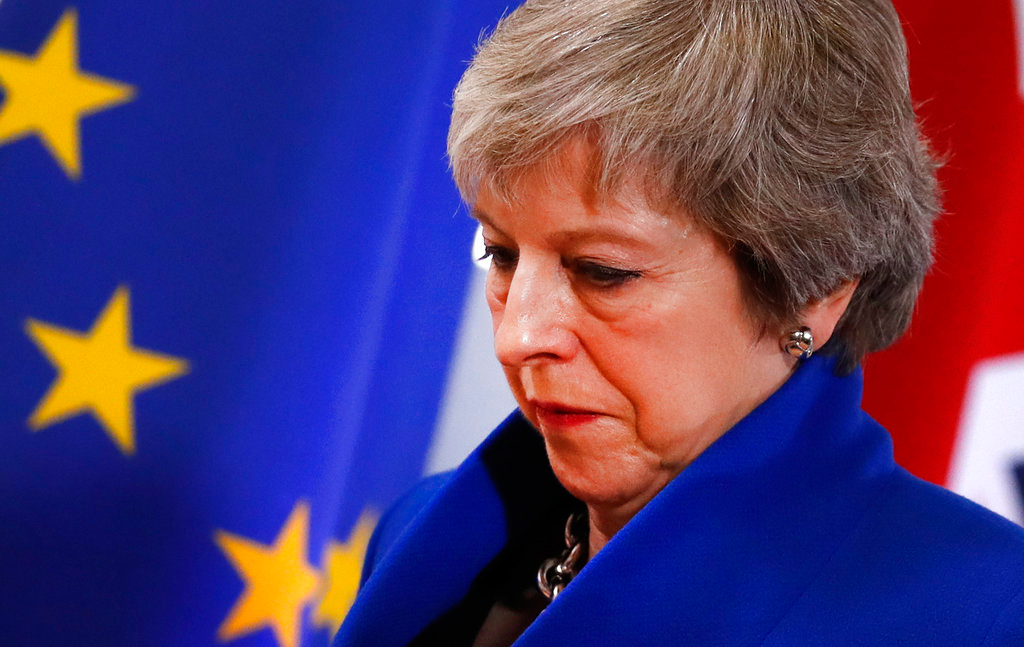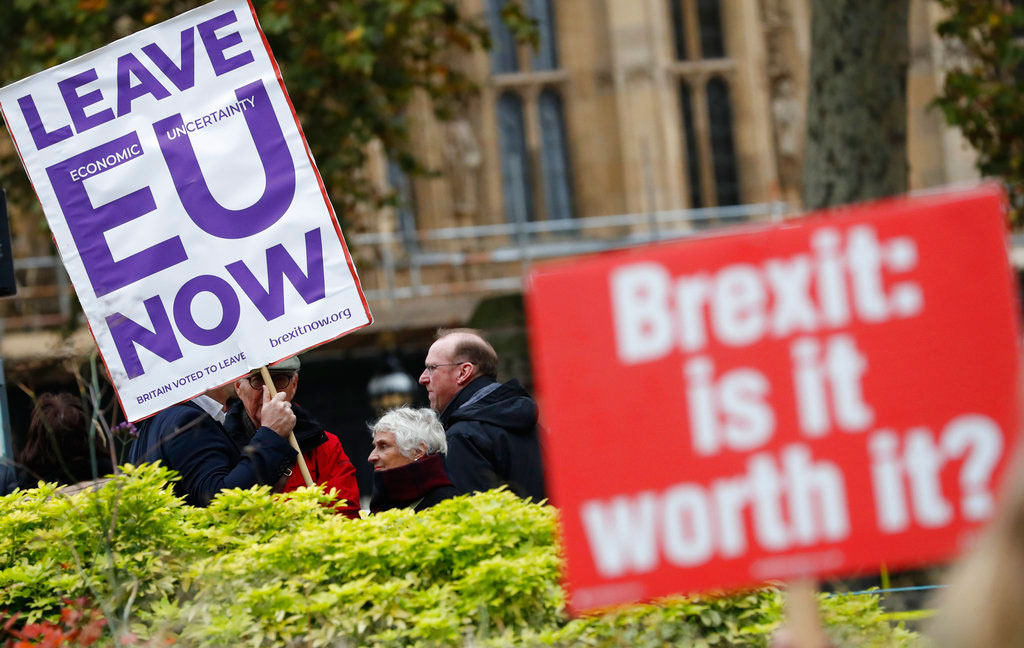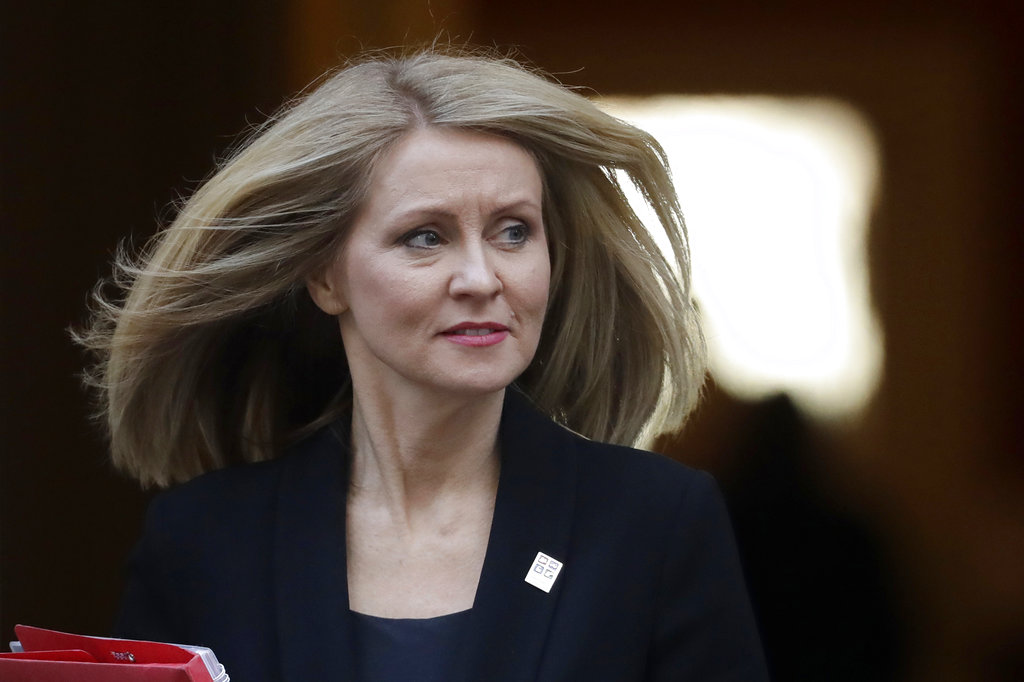Rather in the manner of a mother talking to her children, Theresa May has written a personal letter to the people of Britain asking them to support the Brexit deal which was formally agreed on Sunday by leaders of 27 remaining members of the European Union at a summit in Brussels.
Writing such an open letter is an unusual approach in British politics but the Prime Minister hopes the electorate will put pressure on the 90-odd Tory MPs who intend to vote against the deal along with the Labour Party, the 10 members of Northern Ireland’s 10 Democratic Unionist Party who are supposed to prop up her governments, the Scottish National Party and other members of parliament.
May repeated the message in her letter in her remarks after the summit when once again she refused to answer questions about whether she would resign if her deal was rejected by parliament.
“Before Christmas MPs will vote on this deal,” she said. “It will be one of the most significant votes that parliament has held for many years.”
Once again she ruled out a “people’s vote”, saying: “There should not be that second referendum.”
She said that Sunday “marks the start of a crucial national debate in our country over the new few weeks”.
“So I will take this deal back to the House of Commons confident we have achieved the best deal available… In parliament and beyond it I will make the case for this deal with all my heart and I look forward to that campaign.”
In the Indian community there are seasoned watchers such as Lord Swraj Paul who predict that the Prime Minister will get her way in the end but on present arithmetic it does not look she has the numbers.
In her open 800-word letter to the nation, May said: “From my first day in the job, I knew I had a clear mission before me — a duty to fulfil on your behalf: to honour the result of the referendum and secure a brighter future for our country by negotiating a good Brexit deal with the EU.”
She explained: “As Prime Minister of the United Kingdom, I have from day one been determined to deliver a Brexit deal that works for every part of our country — for England, Scotland, Wales and Northern Ireland, for our Overseas Territories like Gibraltar, and also for the Crown Dependencies. This deal will do that.”
Although a Free Trade Agreement with India is some way off, she emphasised: “Outside the EU, we will be able to sign new trade deals with other countries and open up new markets in the fastest-growing economies around the world.”
European Commission president Jean-Claude Juncker issued a warning to MPs seeking to change May’s deal: “This is the best deal possible for Britain, this is the best deal possible for Europe. This is the only deal possible.”
Britain’s main Opposition Labour Party will oppose the deal in parliament, its leader Jeremy Corbyn said, describing the agreement approved in Brussels as “a miserable failure of negotiation”. Corbyn said it was a “bad deal for the country”.
“It is the result of a miserable failure of negotiation that leaves us with the worst of all worlds. It gives us less say over our future, and puts jobs and living standards at risk,” he said in a statement.
Interviewed on the Andrew Marr Show on the BBC on Sunday, former Labour Prime Minister Tony Blair said another referendum was “the only way you are going to unite the country…. I would be really surprised if the Labour Party doesn’t end up in the position of supporting another vote.”
He said he had “a lot of respect” for May, whom he described as a “decent person… surrounded by a lot of pretty unreasonable ones”.
“I respect the fact she manages to stand up, to get on with it,” he said. “I think that’s a great capability…. Personally I can see a lot to admire in the way that she handles herself.”
The 27 leaders took barely half an hour to rubber-stamp the 600-page withdrawal treaty, aimed at an orderly exit on March 29 to be followed by two to three years of a status-quo transition period.
The outline of a future trading and security partnership was just 26 pages long. May’s critics say it leaves Britain tied to EU regulations that it will no longer have a say in setting.
European Council President Tusk said the bloc was determined to have as close as possible a partnership with Britain.
-
Additional reporting by Reuters













